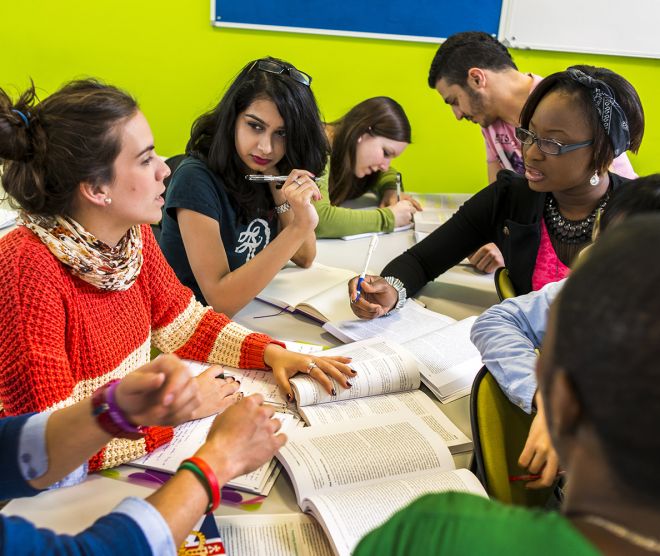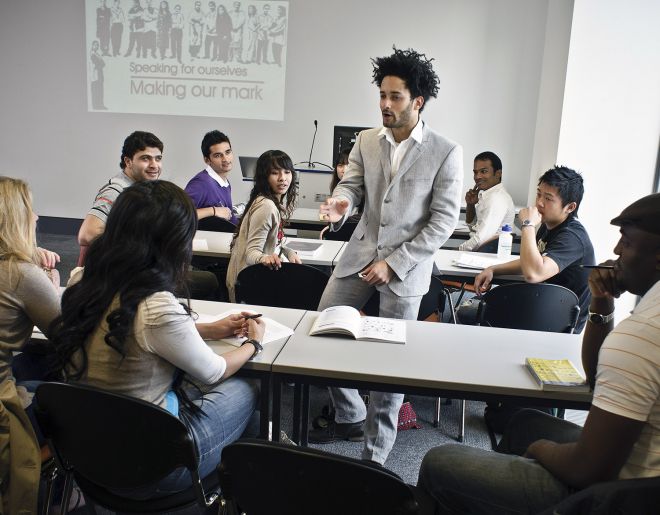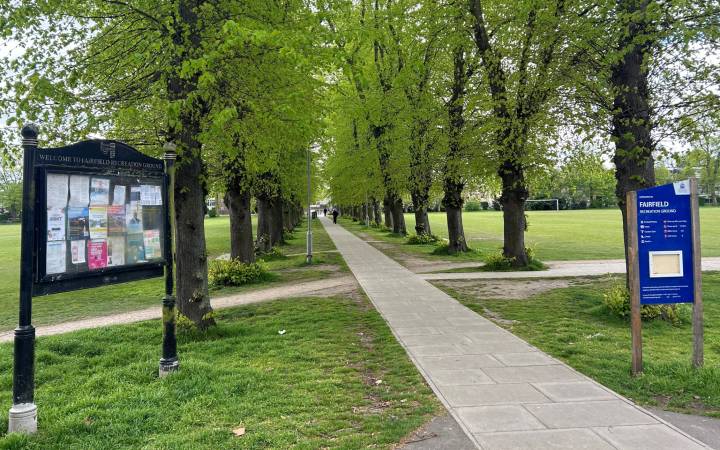Kingston University takes steps to close the BME attainment gap
Posted Monday 16 March 2015
 The gap in attainment between BME (Black and Minority Ethnic) and other students has been a long-standing concern across the whole higher education sector. However, Kingston University is now about to play a key role in addressing this important national issue.
The gap in attainment between BME (Black and Minority Ethnic) and other students has been a long-standing concern across the whole higher education sector. However, Kingston University is now about to play a key role in addressing this important national issue.
Following a recommendation by the Vice-Chancellor and, with the endorsement of the University's Board of Governors on 4 March 2015, Kingston University will now continue to build on work undertaken over the past three years. Led by the Deputy Vice-Chancellor (Education), the University will introduce initiatives that aim to ensure students from BME backgrounds get the very most out of their time at university, achieve their full potential, and leave with great prospects.
Kingston University aims to lead nationally and will focus its efforts to improve institutional processes, enhance knowledge and skills, and better support its diverse range of students.
The decision is based on a several key factors:
• Across the UK, BME students are less likely to achieve their potential when compared to white students even where entry qualifications and subjects studied are identical.
• The University has a majority of BME students and wants to ensure all students realise their full potential.
• There is a need to address a complex range of influences. Only some factors relate to students' circumstances (e.g. many live at home, have caring responsibilities, need to work to support themselves), which distracts from their ability to learn and study. Other factors relate to the way a higher education institution behaves, such as ensuring there is a climate which is welcoming to all students and a curriculum which is relevant to all student experiences.
As a result the University has now adopted:
1. The reduction of the BME attainment gap as an institutional KPI.
2. A value-added score system, as used in the Guardian league tables, as the key metric.
3. An Achievement Plan containing key initiatives that improve the institution, knowledge and skills, and student outcomes.
 The Vice-Chancellor of Kingston University, Professor Julius Weinberg, said: "By adopting this approach, Kingston University is seeking to further identify the main issues and then take steps to ensure all students achieve their full potential. Our initial focus will be on disseminating clear accurate data, supporting those courses with the largest attainment gap, increasing understanding of diversity and cultural differences, as well as offering support to ensure the curriculum is inclusive and relevant."
The Vice-Chancellor of Kingston University, Professor Julius Weinberg, said: "By adopting this approach, Kingston University is seeking to further identify the main issues and then take steps to ensure all students achieve their full potential. Our initial focus will be on disseminating clear accurate data, supporting those courses with the largest attainment gap, increasing understanding of diversity and cultural differences, as well as offering support to ensure the curriculum is inclusive and relevant."
The Deputy Vice-Chancellor (Education), Professor Lesley-Jane Eales-Reynolds, said: "We are making it a key priority to ensure that the University offers all students an equal opportunity to succeed. We know from research that BME students often have less self-confidence than white students and so we have introduced some key opportunities that we know make a difference.
"For example our Student Associate Programme has shown that 92.9% of those BME students who engage with it progress in their studies, whilst only 77.9% of those who do not engage, progress. Also, our Student Leadership Project run by student services showed a progression rate of 88% for BME students who engaged, and only 79% for those who did not. All of these opportunities are designed to build self-confidence and develop the skills that are valued by employers and are likely to make students succeed in their assessments."
Find out more about equality, diversity and inclusion at Kingston University
Contact us
General enquiries:
Journalists only:
- Communications team
Tel: +44 (0)20 8417 3034
Email us



